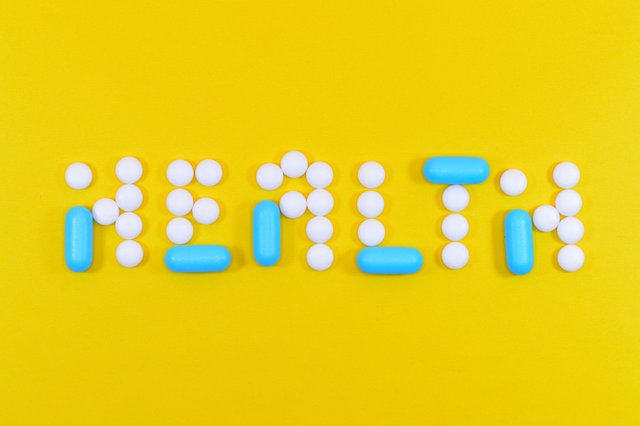Be wary of these ten common drugs will react with food

Taking a new drug may mean changing your lifestyle, including the food you eat. The interaction between food and medicine means that certain nutrients or compounds in the food change the way the body metabolizes the medicine, thereby increasing or decreasing the amount of medicine the body absorbs. The potential result is an increased risk of side effects, or the drug does not work as expected.
Before preparing to take a new medicine, ask your doctor or pharmacist about its possible interactions with any food (including alcohol), and whether you need to make some adjustments to your diet.
The US "Health Daily" website summarizes 10 common drugs that interact with food.
Paracetamol and alcohol
If you take Tylenol (the trade name of acetaminophen) after drinking alcohol to avoid a hangover, you put yourself at risk. When this medicine is combined with alcohol, it increases the risk of liver toxicity. If you are a person who drinks regularly (especially more than three glasses a day), or takes acetaminophen every day, the risk of this combination is the highest.
some antibiotics and dairy products
Certain antibiotics should not be taken with milk, yogurt or cheese. This is because dairy products bind to the drug and interfere with its absorption in the blood. This principle applies to fluoroquinolones (such as ciprofloxacin, levofloxacin, and moxifloxacin) and certain tetracyclines. The safest approach is to avoid dairy products at least 2 hours before and 6 hours after taking antibiotics.
Calcium channel blockers, statins and grapefruit
Calcium channel blockers are used to treat high blood pressure and angina pectoris. For example, felodipine and nifedipine (Xintongding) interact with grapefruit juice. This situation also occurs with statins used for high cholesterol, such as atorvastatin and simvastatin. A compound contained in grapefruit inhibits a common drug metabolizing enzyme called CYP3A4. Drinking a lot of grapefruit juice or eating this fruit will inhibit this enzyme, and the drug will accumulate in the system, causing danger. However, this does not happen when eating other citrus fruits, so you can drink orange juice freely.
Monoamine Oxidase Inhibitor and Aged Cheese
If you are taking monoamine oxidase inhibitor antidepressants (such as isocarboxazid, phenelzine, selegiline, or tranylcypromine), you need to pay attention to foods high in tyramine. Tyramine is an amino acid involved in blood pressure regulation. The combination of monoamine oxidase inhibitors and tyramine can cause hypertensive crisis. Foods high in tyrosine include matured cheese, certain types of wine, pickled herring, yeast used for brewing beer, and broad beans.
Nevertheless, this type of antidepressant is not as frequently prescribed as other types of antidepressants (such as selective serotonin reuptake inhibitors); therefore, if you are concerned about this interaction, choose to take it Other types of antidepressants.
Ziprasidone and small meals
Ziprasidone is an antipsychotic drug used to treat bipolar disorder and schizophrenia. The patient needs to eat a regular meal containing at least 500 kilocalories when taking the medicine. As one study has shown, eating a lot of snacks or small meals while taking the medicine can optimize the absorption of the medicine so that it can work most effectively.
Medications and any food for hypothyroidism
If diagnosed with hypothyroidism, the patient may need to take levothyroxine sodium tablets (U-Malox) to restore hormone levels. Youjiale should be taken in the morning on an empty stomach, and eat again 30 to 60 minutes after taking it. Because food will prevent the absorption of this drug in the small intestine, reduce the absorbed dose, thereby affecting thyroid function.
Spirolactone and Liquorice
Spirolactone, a diuretic, is used to treat hypokalemia and heart failure. If you drink licorice tea, eat licorice candy, or consume nutritional supplements containing this ingredient while taking this medicine, you need to be extra careful. Glycyrrhizin competes with the same receptor as spironolactone, which makes the drug ineffective.
Some antidepressants and alcohol
"Selective serotonin reuptake inhibitors can be used to treat anxiety disorders." However, the risk of combining such antidepressants with alcohol is gastric or digestive tract bleeding. While taking this medicine, intending to reduce symptoms of anxiety or depression by drinking alcohol can cause serious problems.
Warfarin and Broccoli
Warfarin is a blood thinner, mainly used to prevent and treat thromboembolic diseases. Vegetables like kale and broccoli contain vitamin K. The problem is that vitamin K has the effect of antagonizing warfarin. If the efficacy of warfarin is suppressed and does not work properly, the risk of thromboembolism will increase. Therefore, people who eat more agricultural products should consider this side effect.
Metronidazole and alcohol
Metronidazole is used to treat anaerobic infections, including bacterial vaginitis. Never drink alcohol while taking the drug, because this drug will affect the normal metabolism of alcohol in the body. This combination can cause severe vomiting, body flushing, headaches, nausea, and a drop in blood pressure.